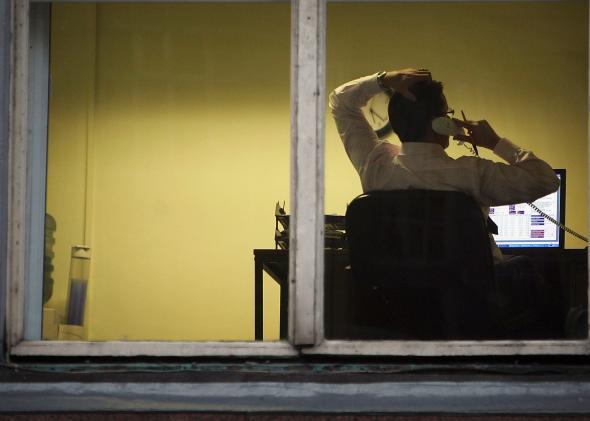When you call a company’s support line, you often hear that the call may be monitored or recorded. It’s so standard that we barely pay attention. Plus, usually it seems like a good thing. If and when the call devolves into unproductive arguing, it’s kind of nice to know that the company has evidence documenting how much their helpline sucks. But a new Associated Press report says that at least two U.S. banks do biometric “voiceprinting” on caller’s voices to protect against fraud and impersonators.
The AP says that JPMorgan Chase and Wells Fargo both keep voice data to uniquely identify at least some customers. And executives at voice analysis services, like Verint Vice President Mark Lazar, told the AP that the technique is extremely successful in reducing fraud and is growing in popularity. But there are a couple of problems : It’s already illegal to share biometric data in some states, like Illinois. Furthermore, the implications of banks controlling such a database are troubling to privacy advocates. Jay Stanley, an analyst for the American Civil Liberties Union, told the AP, “Reducing fraud is a good thing …[but] we can’t anticipate what bright new uses this database will be put to in the future.”
Chase spokesperson Patricia Wexler said the company was “exploring many types of biometric authentication.” Wells Fargo spokeswoman Natalie M. Brown said that “sharing any information about our fraud prevention measures would jeopardize their effectiveness.” Both declined to directly comment on whether their institutions voiceprint.
Voiceprinting is already used for law enforcement and by governments in Mexico, Russia, the United States, and elsewhere. An AP survey of 10 voice analysis companies showed that more than 65 million people have been voiceprinted worldwide. And though voiceprinting is difficult because of all the fluctuations in the human voice and isn’t totally accurate yet, it seems to be a reasonable way of identifying people.
The FBI’s facial recognition database, which is supposed to have 52 million entries by 2015 and is being seeded with more than 4 million civilian photos, will be another testing ground for the privacy implications of huge biometric databases. But it’s not secret or privately held, so these bank caches might actually be scarier.
